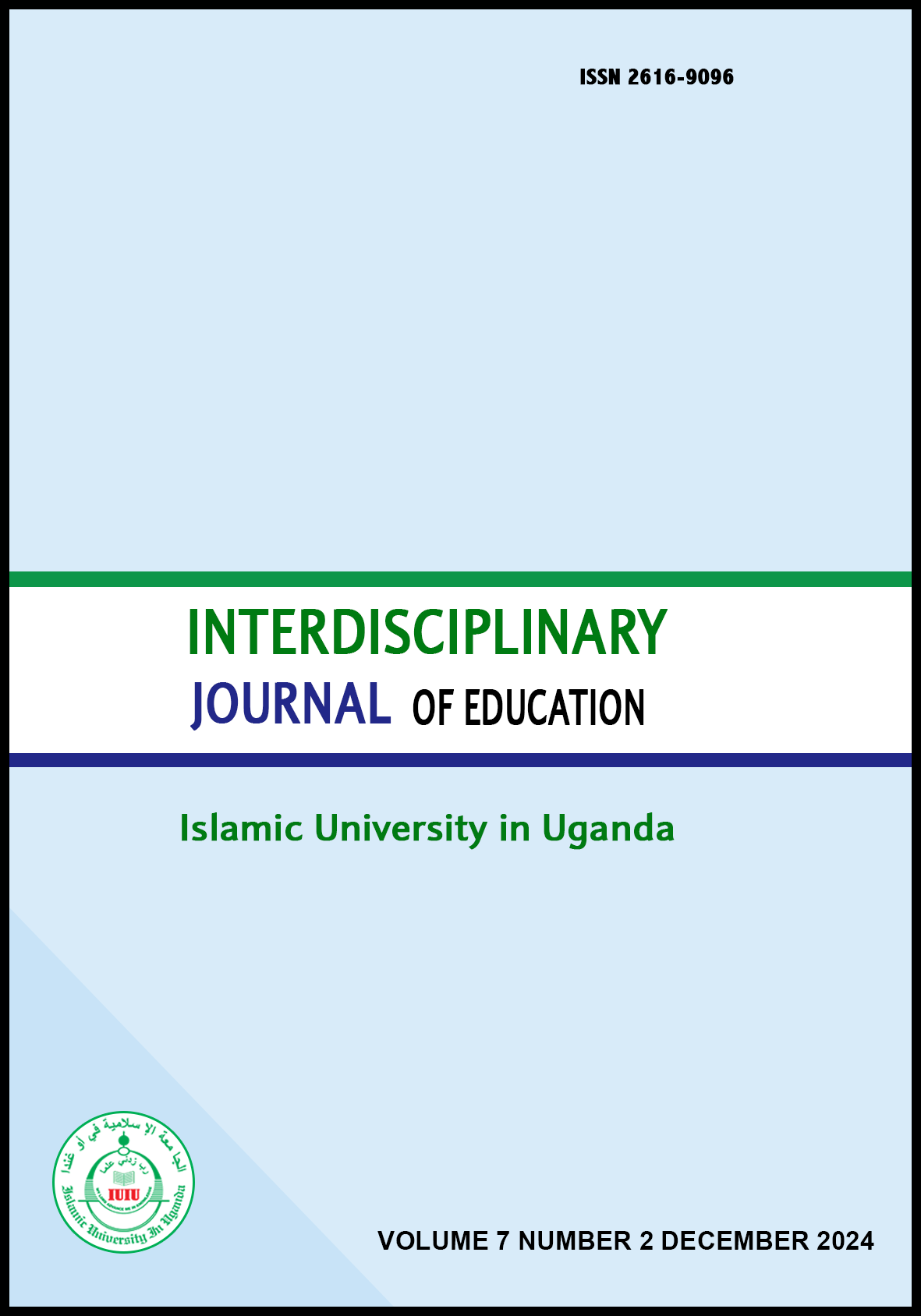Citizenship Socialization Process and National Integration
Appraisal of Civics and General Studies Courses in Nigerian Schools
DOI:
https://doi.org/10.53449/ije.v7i2.477Keywords:
citizenship socialization, general studies, socialization, national integrationAbstract
Efforts at nation-building in Nigeria are hindered by various social problems linked to the low level of national integration among its religiously, regionally and ethnically diverse population. This paper examined citizenship socialization courses and subjects at the three (3) levels of education (Basic, Secondary and Tertiary) in Nigeria that are designed to promote national integration. The courses and subjects include Citizenship Education, Civic Education and General Studies (Peace Studies and Conflict Resolution and Nigerian Peoples and Culture). Similarly, key concepts such as socialization, citizenship socialization courses and national integration are conceptualized. The Functionalists sociological perspective was adopted as a theoretical framework to establish the link between citizenship socialization courses and subjects and promotion of national integration. However, despite the link or potential of citizenship education in raising the level of national integration, the paper identified some constraints on the extent to which citizenship socialization courses and subjects promote the desired national integration among the people of Nigeria. These challenges include the current assessment methods in schools, which focus on testing cognitive rather than affective abilities, the problem of inadequate funding of education in general, large size lecture halls and other poor teaching and learning conditions and Low credit units or time on the time table on specific curriculum subjects and courses meant citizenship socialization for national integration. To address these challenges, the paper suggests diversifying assessment and evaluation methods, among other strategies, to improve the teaching of citizenship socialization courses and promote national integration in Nigeria.
Downloads
References
Abdullahi, M. & Moses-Ojo, O. A. (2016). Peace building process in Nigerian universities: An appraisal of students’ performance in peace and conflict resolution studies at Abubakar Tafawa Balewa University, Bauchi (2006 – 2014). International Review of Social Sciences and Humanities Vol. 11, No. 1 pp. 1-9.
Ballantine, J. H., & Spade, J. Z. (2012). Schools and society: A sociological approach to education. London, SAGE publications Inc.
Bello, R. B, (2013). Introduction to sociology of education. Kano: Debols Graphics Press.
Federal Government of Nigeria (2013). National Policy on Education. Abuja, FME Press
Haliru, T. (2012). How ethnicity and political violence threatens democracy in Nigeria Journal of Social Sciences and Humanities, 1(2).
Haralambos, M., & Holborn, M. (2017). Sociology: Themes and perspectives. London, University Tutorial Press.
Jekayinfa, A. A, Mofoluwawo, E. O, Oladiran, M. A. (2016). Implementation of civic education curriculum in Nigeria: Challenges for social studies teachers. Retrieved from http//www.unilorin.edu.ng/pub.
Mahuta, M. G., & Ladan, S. A. (2016). Overview of the role of citizenship education in sustainable peace and economic development in Nigeria: Nigerian Journal of Sociology of Education. Vol X pp. 495-504.
National Universities Commission (2022). Core curriculum and minimum academic standards. Abuja, NUC press.
National Commission for Colleges of Education (2012). Nigeria Certificate in Education minimum standards for general education. Abuja, NCCE Press.
Nweke, C. C., & Nwoye, C. D. (2016). Higher education and general studies in Nigeria: A philosophical investigation. Mgbakoigba, Journal of African Studies, 6(1), 4-17.
Ogunbameru, O. A. (2010). Sociological theory. Ibadan Penthouse Publication (Nig)
Okam, C. C., & Danladi, S. I. (2011). Exploring emerging myths and realities in citizenship education in Nigeria: Towards overcoming the dilemmas of nation-building. Proceedings of the 2011 International Conference on teaching, learning and change retrieved from www.citizenshipeducation/development.ng
Olakunle, O., Joseph, I., & Segun, O. (2016). Indigene-settler relationship in Nigeria: Case study of the Igbo community in Lagos. Afro Asian Journal of Social Sciences, 7(3), 2-15.
Ozohu-Suleiman, A. (2016). Democracy, good governance and development in Nigeria. Journal of Public Administration and Policy Research, 8(7).
Uko, L. A. (2024). Challenges of inadequate funding in the administration of university education. Research Invention Journal of Current Research in Humanities and Social Sciences, 3(1), 32-40.
Usmanu Danfodiyo University Sokoto (2022). Students’ handbook revised. Sokoto UDUS University Press.
Victor, A. E. (2015). An introduction to sociology of education. Abuja. Worldmak GNL.
Downloads
Published
Issue
Section
License
Copyright (c) 2024 Sirajo Alhaji Ladan, Samaila Bello

This work is licensed under a Creative Commons Attribution-NoDerivatives 4.0 International License.








